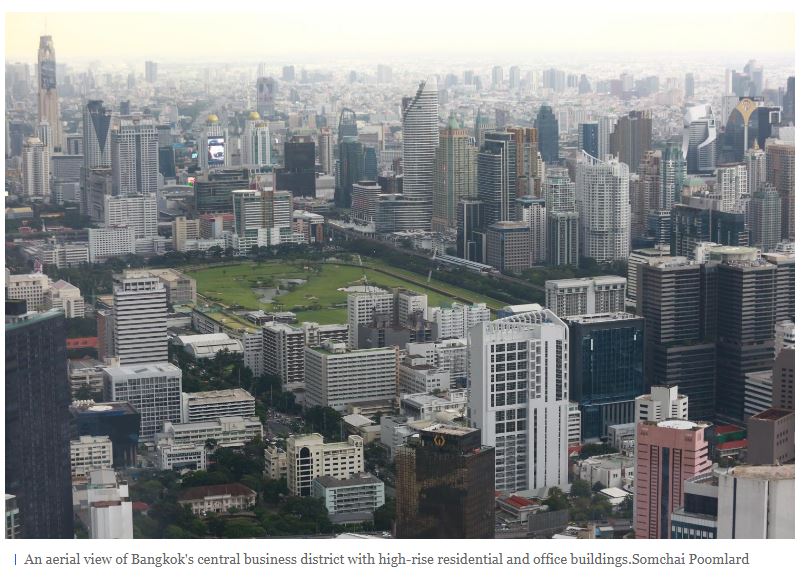Thailand: Pandemic leads to falling rents, glut
The Covid-19 pandemic has exacerbated an already uncertain residential and office property market in Bangkok, likely to lead to falling rents and a glut of vacancies, says the chief executive of Savills Thailand.
“We were predicting the office market was going to come under immense pressure anyway irrespective of the Covid-19 event because the volume of new office supply in the central business district (CBD) is expected to reach 150% on top of a current level of supply that would have already put downward pressure on rental rates, likely leading to higher vacancy rates,” said chief executive Robert Collins.
He said rents have increased as much as 100% in the past 5-10 years at some office properties in Bangkok’s CBD, but that trend is likely to reverse course this year due to the economic crisis.
An “enormous” amount of new office supply is expected to come online this year from ongoing projects in the face of decreasing demand and growth in the sector.
The recent push to get employees working from home in response to the pandemic will not likely have a considerable impact on the office market, Mr Collins said.
“It seems unlikely the work from home movement will play through in a competitive environment,” he said.
“If your competitor sticks with a traditional work from the office approach and they are doing well, and your company uses the work from home approach and loses ground, I think work from home will likely get thrown in the bin.”
Large corporations still need a physical address for tax purposes, however lean companies may consider permanently transitioning to work from home to cut costs. Yet that may affect the co-working market more than traditional office spaces, said Mr Collins.
A key trend in the office market may be large corporations looking to fully purchase space in the CBD area, something in short supply currently.
As developers look to reduce risk and move away from being the sole landlord of their developments they may look to sell outright whole floors of buildings in high-demand areas, something common in Singapore and Hong Kong, but not yet a common practice in the Bangkok market.
On the residential side, he said the market will feel the effects of the crisis much sooner, as developers struggle to sell off existing supply of condominiums as overseas buyers dwindle.
“There is quite a lot of evidence that residential developers are reconsidering what to do with their land and in the first instance pushing back projects by a few years. For projects that are still in the design stage, they are going back to the drawing board and considering if they should stop bringing residential properties to the marketplace,” said Mr Collins.
“On the flip side it will allow existing supply to stabilise and not be under constant pressure from new supply. It also allows much older properties, particularly condominiums in the CBD in the 20- to 30-year age group, to become a more viable option to purchase.”
One of the few winners in the property sector through this crisis has been food-based retail properties, particularly those with strong delivery capabilities.
“Retail has been quite a good sector compared to residential and can sustain better than offices over the next few years,” he said.
“There is also a very strong level of interest among retailers in the region in Thailand, particularly because of the tremendous tourist numbers in past years, which have been taken advantage of by vibrant retail brands.”
Source: https://www.bangkokpost.com/business/1929064/pandemic-leads-to-falling-rents-glut


 English
English




